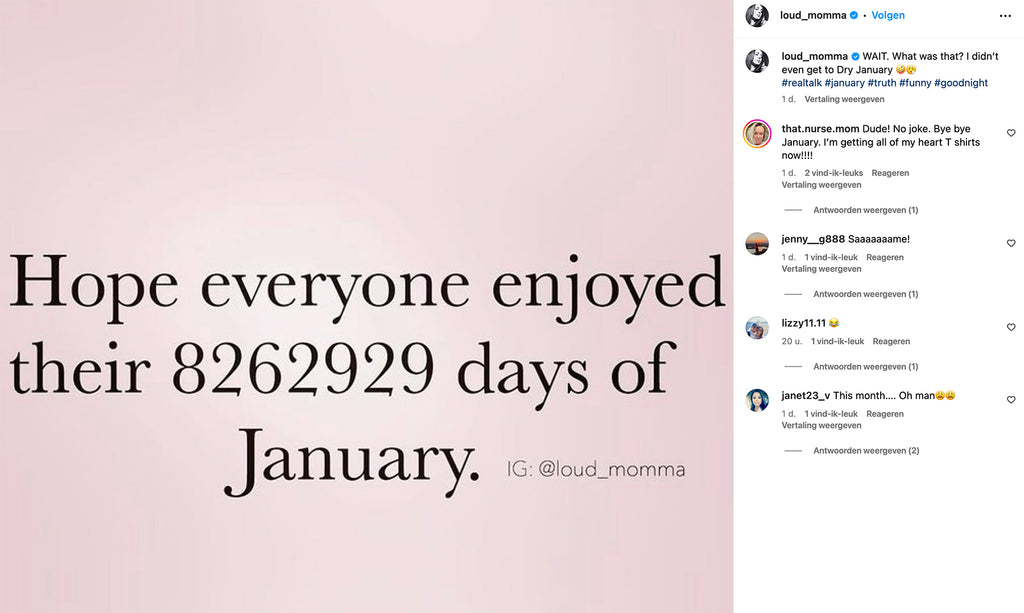Did you also have the feeling that January lasted a year, while December flew by? It is a common phenomenon that many of us experience every year. But why does time feel so much slower in January than in December? Let's dive into the psychology behind our perception of time and discover what makes January so unique.
The psychology of time
Our perception of time is not constant; it can vary depending on several factors, including our activities, emotions and the amount of new experiences. Scientists believe that when we undergo new and engaging experiences, our brains create more detailed memories. This phenomenon, known as the 'novelty effect', can make time seem longer in retrospect.
So you are not alone...
December: festive month
December is a typical month full of festivities, family gatherings and new experiences. From celebrating Sinterklaas and Christmas , visiting Christmas markets to celebrating New Year's Eve, our days are filled with events that deviate from our daily routine. This abundance of new experiences causes our brains to create more memories , which, in retrospect, makes the month seem to pass quickly.
January: back to reality
In contrast to the festive month of December, January is often all about returning to the daily routine. The holidays are over, the Christmas decorations are being put away and we are getting back into the hustle and bustle of the day. This return to normal, often without many new or exciting events, can make January feel like a long, drawn-out month.
The influence of good intentions
Many people start January with a list of good intentions . Whether it's exercising more, eating healthier, or learning a new skill, these goals often require significant effort and adjustments to our routines. The added pressure and potential for disappointment when goals aren't achieved immediately can make January feel extra hard and long.
The days are getting longer
Another aspect that contributes to the feeling that January is long is the slow increase in daylight. Although the days begin to lengthen after the shortest day in December, this change is barely noticeable at first. The slow lightening can stretch our sense of time as we eagerly await longer and warmer days.
Long story short
The feeling that January lasts longer than other months is a fascinating example of how our experience of time can be influenced by a mix of psychological factors, seasonal changes and social routines. As we plow through this long winter season, it's helpful to remember that this perception of time is largely subjective. Perhaps we can even start to see January as a month of reflection, renewal and gradual preparation for the vibrancy of spring ahead.

















Interesting? Share with someone:
Why stopping scrolling is so difficult + 3 viewing tips
Fun and safe solo travel: useful tips for you